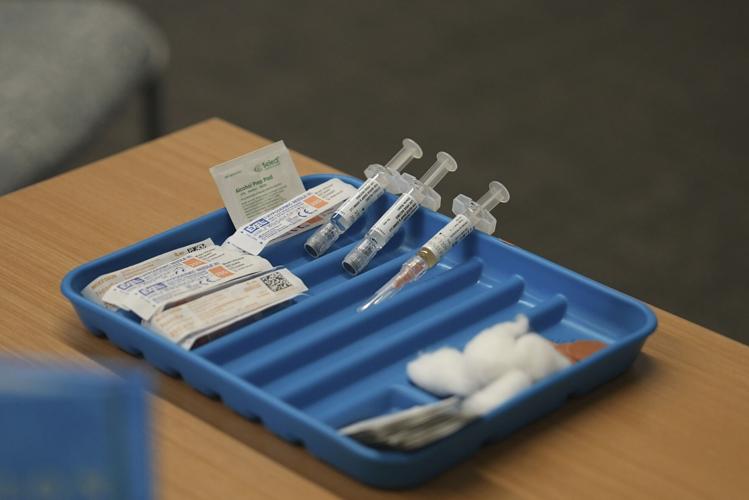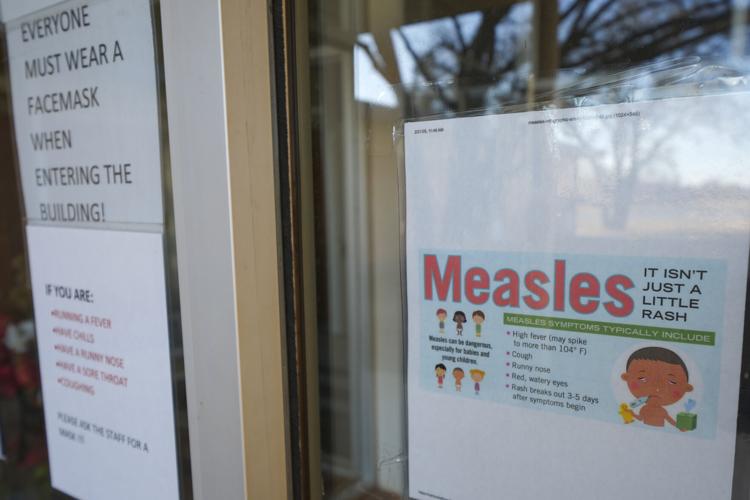LOUISVILLE, Ky. (WDRB) -- The first confirmed case of measles in Louisville was recently identified, Mayor Craig Greenberg said Tuesday.
Greenberg and health officials confirmed the case in a child who traveled internationally with their family to a country facing an outbreak.
Earlier this month, Kentucky had its first measles outbreak of 2025, as the U.S. case count sat just short of a 30-year high. There were 1,288 confirmed measles cases this year as of July 9, the Centers for Disease Control and Prevention said. Public health experts said the true figure may be higher.
Measles is caused by a highly contagious virus that's airborne and spreads easily when an infected person breathes, sneezes or coughs. It is preventable through vaccines and has been considered eliminated from the U.S. since 2000.
"In the last 20 years, there were only eight cases of measles in Kentucky," Greenberg said. "And now in Kentucky, we have 12 active cases."
Greenberg said of the other 12 active cases in Kentucky, 11 of the people were unvaccinated. Connie Mendel, Louisville's chief health strategist, said the vaccination status of the Louisville patient isn't known at this time.
Greenberg said measles can be incredibly dangerous. Early symptoms of measles can begin eight to 12 days after exposure.
"Public health is in the process of doing contact tracing to advise people who may have been in contact with this individual," he said. "Public health will tell those that they connect with contact tracing what to do. But there is a group of people we will be asking to isolate. The reason for that is measles is an incredible highly contagious virus. Measles spreads through the air when people cough, sneeze or even breathe."
Mendel said two doses of the MMR vaccine provides 97% protection against the virus. According to Norton Healthcare, the Measles-Mumps-Rubella vaccine is recommended for children starting at age 12 to 15 months, and a second dose between ages 4 and 6 years old. Children as young as six months are eligible to receive the vaccine if traveling internationally.
"You're contagious before you ever have a symptom," Mendel said. "A few days before you're symptomatic, those droplets from the virus from coughing and breathing and sneezing can hang in the air for up to two hours. That's why it's so contagious."
A recent study found childhood vaccination rates against measles fell after the COVID-19 pandemic in nearly 80% of the more than 2,000 U.S. counties with available data, including in states that are battling outbreaks this year. And CDC data showed that only 92.7% of kindergarteners in the U.S. had the measles, mumps and rubella vaccine in the 2023-2024 school year, below the 95% needed to prevent outbreaks.
Three people have died — two children in Texas and an adult in New Mexico — and dozens of people have been hospitalized across the U.S.
"America thought measles had been eliminated in 2000, which meant the virus was no longer continuously spreading and the reason for this was because a very high percentage of Americans had received the MMR vaccine or the measles mumps rubella vaccine," Greenberg said. "And that allowed for community immunity. However, in recent years across America the number of children who are getting the MMR vaccine has declined."
Top Stories:
Man dead, teen injured after Tuesday morning shootings in Louisville's west end
New Indiana cigarette tax sends smokers — and sales — across state lines
72-year-old killed in Kentucky church shooting was grandmother of alleged gunman's children
Copyright 2025 WDRB Media. The Associated Press contributed to this report. All Rights Reserved.





